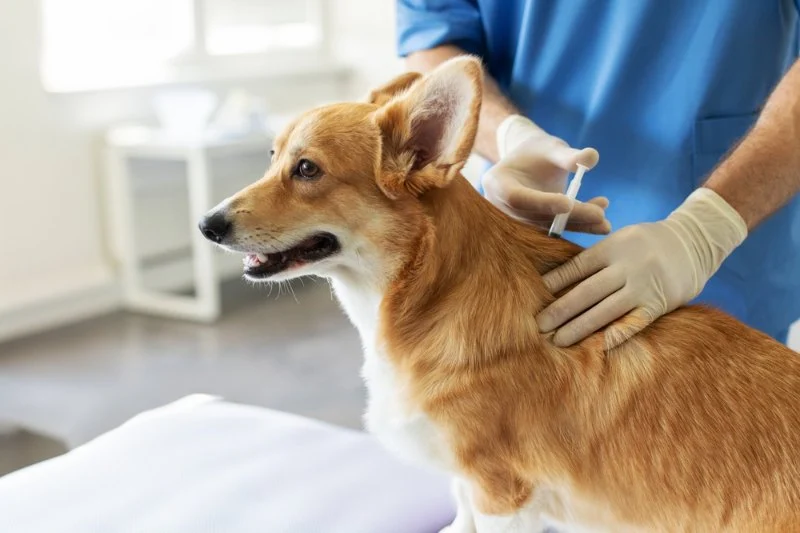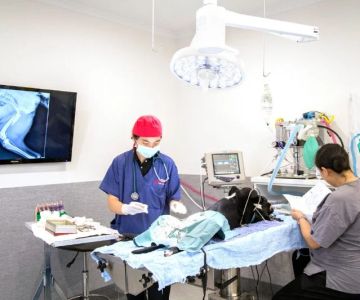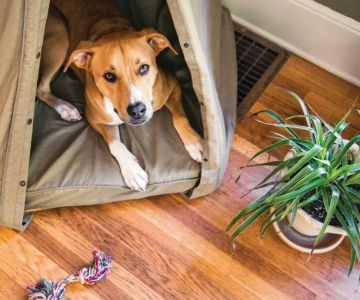
- 1. What Are Pet Vaccinations?
- 2. Why Are Pet Vaccinations Important?
- 3. Essential Pet Vaccines for Dogs
- 4. Puppy Vaccination Schedule
- 5. Keeping Your Pet Healthy After Vaccination
- 6. How to Prepare for Your Pet’s Vaccination Appointment
1. What Are Pet Vaccinations?
Vaccines are essential to your pet’s long-term health and protection. They are designed to prevent serious diseases caused by bacteria, viruses, or parasites. For your furry friend, vaccines are an essential part of a routine healthcare regimen. But what exactly are they? Vaccines are biological preparations that help your pet's immune system recognize and fight off infections, making them resistant to diseases.
2. Why Are Pet Vaccinations Important?
Pet vaccinations are crucial because they help protect against contagious diseases that could be fatal. Without vaccines, pets can easily contract deadly illnesses like rabies, parvovirus, or distemper. Keeping your pet up to date with their vaccination schedule reduces the risk of these illnesses spreading in your home, among other pets, and in the community. Vaccines ensure that pets live longer, healthier lives, and they also help to minimize veterinary bills related to illness treatment.
3. Essential Pet Vaccines for Dogs
When it comes to dogs, certain vaccines are recommended to keep them safe and healthy. These vaccines include:
- Rabies: Required by law, the rabies vaccine is one of the most critical vaccines for dogs.
- Distemper: A serious and often fatal virus affecting a dog’s respiratory, gastrointestinal, and nervous systems.
- Parvovirus: A highly contagious virus that can cause severe gastrointestinal illness.
- Adenovirus (CAV-2): Protects against infectious hepatitis and respiratory illness.
- Leptospirosis: A bacterial infection that affects the liver and kidneys, often transmitted through water or soil contaminated by urine from infected animals.
- Bordetella: A vaccine that protects against kennel cough, a highly contagious respiratory illness.
These vaccines are considered core for most dogs. Your veterinarian may also recommend non-core vaccines based on your dog's lifestyle and the environment they live in.
4. Puppy Vaccination Schedule
For puppies, vaccinations start early in life to build immunity against common diseases. Here's a typical puppy vaccination schedule:
- 6-8 Weeks: First round of vaccinations including parvovirus and distemper.
- 10-12 Weeks: Follow-up doses for distemper and parvovirus, as well as the first rabies vaccine.
- 14-16 Weeks: Additional vaccinations for core diseases and a booster for rabies.
- 12-16 Months: Booster doses to keep immunity strong and prevent infection.
It's essential to follow this vaccination schedule to ensure that your puppy is adequately protected against these deadly diseases. Your veterinarian will provide a personalized vaccination plan based on your puppy's breed and health history.
5. Keeping Your Pet Healthy After Vaccination
After vaccination, pets may experience mild symptoms like tiredness, fever, or slight swelling at the injection site. These side effects are generally short-lived and indicate that the immune system is responding to the vaccine. However, if your pet shows signs of severe reactions such as vomiting, excessive swelling, or difficulty breathing, it's important to contact your veterinarian immediately. To ensure your pet stays healthy, provide a calm, comfortable environment for them to rest and recover.
6. How to Prepare for Your Pet’s Vaccination Appointment
Preparing for your pet’s vaccination appointment involves making sure they are healthy and up to date with any prior vaccinations. Here’s what to do:
- Ensure your pet is feeling well. Postponing vaccination if your pet is unwell ensures that the vaccine will be effective.
- Bring your pet's vaccination history and records to the appointment.
- Plan for a quiet, stress-free visit to the veterinary clinic. Comfort your pet during the visit to keep them calm.
- Follow your veterinarian's recommendations for any necessary follow-up care after the appointment.
By preparing ahead of time, you can ensure a smooth vaccination process for both you and your pet.
Keeping your pet vaccinated is one of the best ways to ensure they lead a long and healthy life. For more information on vaccines or to find high-quality pet products and services, visit Pet & Puppy.









 1214 Central Store0.0 (0 reviews)
1214 Central Store0.0 (0 reviews) Burlington Pet Hospital4.0 (118 reviews)
Burlington Pet Hospital4.0 (118 reviews) ArkVets4.0 (426 reviews)
ArkVets4.0 (426 reviews) Hartzell Veterinary Service: Charles W. Hartzell, DVM and Sue Ann Hartzell, DVM4.0 (105 reviews)
Hartzell Veterinary Service: Charles W. Hartzell, DVM and Sue Ann Hartzell, DVM4.0 (105 reviews) Noah's Ark Animal Hospital4.0 (163 reviews)
Noah's Ark Animal Hospital4.0 (163 reviews) Jasper Pet Clinic4.0 (285 reviews)
Jasper Pet Clinic4.0 (285 reviews) Transitioning Training Methods as Pet Ages: Adapting Techniques for Senior Pets
Transitioning Training Methods as Pet Ages: Adapting Techniques for Senior Pets How to Read & Understand Pet Nutrition Labels for Your Pet's Health
How to Read & Understand Pet Nutrition Labels for Your Pet's Health How to Choose the Right Pet Supplement Brand: Essential Tips for Pet Owners
How to Choose the Right Pet Supplement Brand: Essential Tips for Pet Owners How Much Should You Feed Your Pet? Portion Guide by Age & Breed
How Much Should You Feed Your Pet? Portion Guide by Age & Breed How to Create a Pet Health Journal: Metrics to Track for Better Pet Care
How to Create a Pet Health Journal: Metrics to Track for Better Pet Care What Breed-Specific Health Issues You Should Be Aware Of
What Breed-Specific Health Issues You Should Be Aware Of